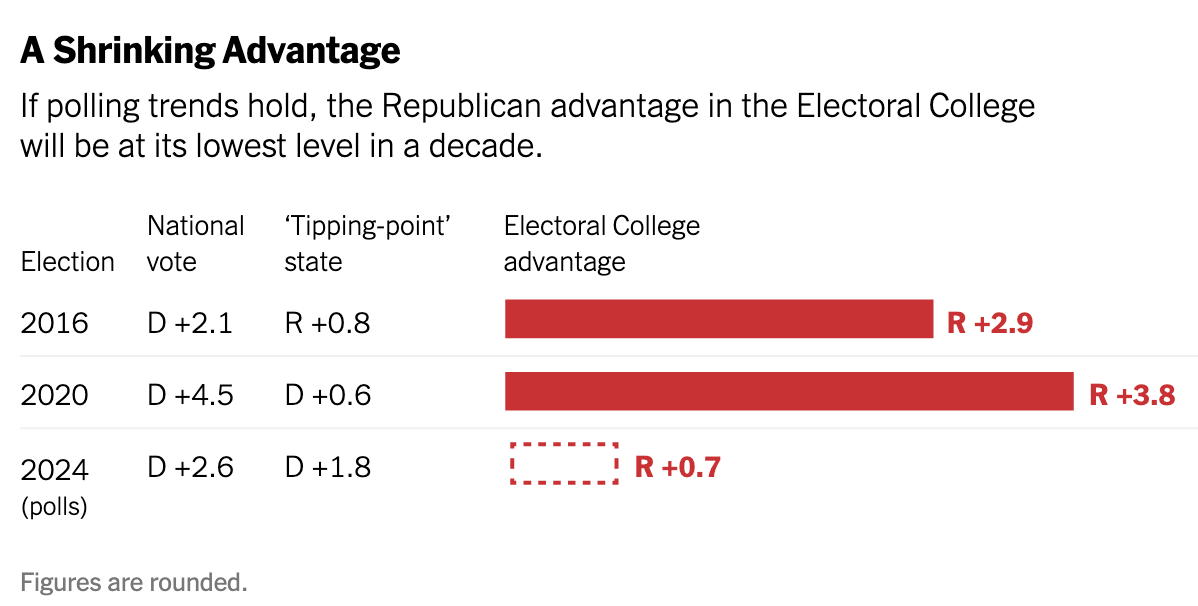RolStoppable said:
I'd put the share of natural far-right people at 10-15%, varying by country. What gets added on top of it is just your common idiot in the face of crises or perceived crises, suckered in by being convinced of an easy solution. |
You are a natural optimist it seems, a literal sunshine of hope. 
Well, yeah, maybe you are right. I just find it very suspicious, that if the circumstances are right we end up with similar vote shares, about a third of people.
| RolStoppable said: I don't see anti-capitalism as the solution (I assume you are refering to Die Linke), but it certainly requires policies that put some much needed stops to the inherently bad traits of capitalism; so not something I'd call anti-capitalism, but rather socialism to keep capitalism in check because the two ideas aren't mutually exclusive, so there's no zero-sum game here. |
I see a problem, that if I say anti-capitalist people assume I am a communist or something along these lines. I probably should explain my stance in more detail.
Capitalism is a system, which incentivizes making money over everything else. So companies will be as exploitative as they legally can be. Or more if they get away with it. There is this notion of making the world better by creating nicer companies. You know, voting with your wallet (which always makes Jeff Bezos the winner). but all that realizes is that companies will signal the alliance with your values in the most cost-efficient way. A tweet supporting Black Live Matters costs them nothing, while actually reducing minerals from conflict regions in Africa (you know, the conflicts that lead to killed black people) is only happening when the government mandates it.
Which is why this whole neoliberal propaganda is really dangerous. They want small government, because they say governments are bad at deciding stuff. That is not wrong, but that leaves companies with more power and they are worse if left unchecked. Especially since in most countries governments are actually democratically controlled (however flawed the process is), while companies aren't.
So if I say anti-capitalist that isn't me rooting for communism. It is me saying we always need to push back against unchained economy. Big government with rules is helping, we see many good effects in europe limiting what companies can get away with. Maybe we could democratize economy as well. Maybe some other reforms. I am open to ideas.
RolStoppable said:
The most damaging trait is of course corruption, because money can buy power, leading to more money to buy even more power. Which is in a nutshell what made the SPD hollow over the years, not to mention that Scholz is more interested in being the chancellor than actually performing the job of a chancellor. |
Yes. If you say corruption, many people think that politicians are actually paid to make decision. That might happen, but the reality is often more mundane. Big companies can pay people that have as their work to talk to politicians: about certain ideas, cherry-picked statistics and so on. Normal people on the other hand have to work, talking to politicians they only can do in their spare time, which is limited and also shared with more fun things like family or hobby. Which means if you are getting more successful as a politician, than more and more people you are talking with are actually paid to talk to you about certain ideas. And these are the things that have the most money behind them.
RolStoppable said:
Another bad trait is exploitation of workers, because capitalism works on the basic premise of spending the least amount of money to gain the most amount of money. That's why we need minimum wage, a limit to work hours per week and so on. The third bad trait is that from a certain point onwards, money makes money. That's why there need to be laws for redistribution of wealth, because otherwise the gap between the rich and the vast majority of people will keep getting bigger. |
Yes, this is what I am saying. You bring up big government with minimum wage and limiting work hours, this is sadly needed, because the capitalist incentives are to exploit workers as much as possible. And despite what people think: people looking for work are less powerful than companies offering work. They will not balance their needs in a fair way (except government supports the workers in some way).
RolStoppable said:
We probably agree on the basic reasoning that the more people there are who can live happy lives, the lower the amount of people who are inclined to vote far-right will be. That has to be the goal and that's what will work in any country, so the sidestep to Austria and Germany we've had here remains relevant for the USA as well. The big problem, though, is that getting an entirely left government elected is a real challenge. Germany hasn't had one in two decades, Austria never had one. Which is probably why our far-right has been such a mainstay all this time. |
Yeah, I see shifting the overton window to the right all the time. At this point I would say SPD and Grüne in Germany aren't left-wing parties anymore, they are more center. But I see AfD supporter claim all the time that government is ruled by extreme leftist. That is how far the overton window has shifted to th right. Happens in other countries as well, the Democrats in the US cannot be called left in any serious way, but reading online you would think they want a communist utopia.

















 But it is a bit worrying, from an individual countries perspective, doesn't help that they all suck up to Russia too.
But it is a bit worrying, from an individual countries perspective, doesn't help that they all suck up to Russia too.







































